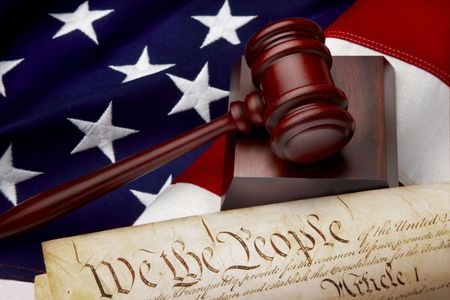In Washington State, Civics is a statewide requirement for high school graduation. But what exactly is Civics, and should it be mandatory? I spoke with two Civics teachers in Washington and someone from Iowa, where it isn’t required.
Mr. Erickson, a Pasco High Civics teacher with 24 years of experience, was the first to be interviewed. When I asked him why he teaches Civics, he shared that he was almost in the role by chance.
“… and I’ve always sort of skewed towards U.S. history,” Mr. Erickson said. “Civics isn’t a history class, but related to many historical themes.”
I then interviewed Mr. French, another Pasco High Civics teacher. He had originally been a middle school teacher before being reassigned, and because he has a political science degree, he became a Civics teacher for high school students.
I posed two questions to both teachers that they seemed to agree on, despite having been interviewed at different times. First, when should students start learning about Civics?
“Well, it’s never too early,” Mr. Erickson said. “At the elementary school level, kids begin to learn the basics of civics in terms of democracy and fairness.”
He explained that as kids grow, they learn about freedom of expression, collaboration, and foundational civic concepts, often without ever taking a formal class. By the time they reach eleventh grade, U.S. History, they delve into the Constitution and related conflicts.
“Third grade,” Mr. French added, humor evident in his voice. “As soon as they can read, they can start learning about this!”
He believes Civics is “the backbone of our society and what makes it grow.” Learning about government empowers individuals to protect their rights and advocate for others. It allows them to identify injustices, fight against them, support existing laws, and educate those who might not understand them.
“It shouldn’t just be a class; it’s a lifelong pursuit,” Mr. French stated.
Next, I asked both teachers which unit they believed students should learn from the most. Both pointed to Federalism. Despite its relevance, this topic was only added to the curriculum this year. Given the current discussions around the balance of power between state and local governments, understanding this unit is vital for the future.
“Separation of powers is important, but understanding the split between local and state governments is much more beneficial in life than grasping the federal government alone,” Mr. French said.
I also interviewed Samantha Benedix, a high school student in Iowa, who was willing to share her perspective on Civics in her state. While she wasn’t the most knowledgeable about the details, she provided insight into her school’s situation.
“My school doesn’t have Civics at all; it’s not required for graduation,” she explained. “Some schools might offer it, but mine does not.”
Samantha mentioned that her school focuses more on government topics, though many students opt for a World War II history class to earn their history credits. She also noted that a new Senate bill has been passed, implementing a Citizenship Test as a graduation requirement instead of a Civics class. Students can retake the test as many times as needed to achieve a passing score. While this sounds fair, she felt it was strange to make the test a requirement rather than offering a dedicated Civics course.
This bill has also gained traction in other states so that we may hear more about it in the coming months and years.
In contrast, Washington has Civics as a mandatory, enriching class. What do you think? Is Civics important?








